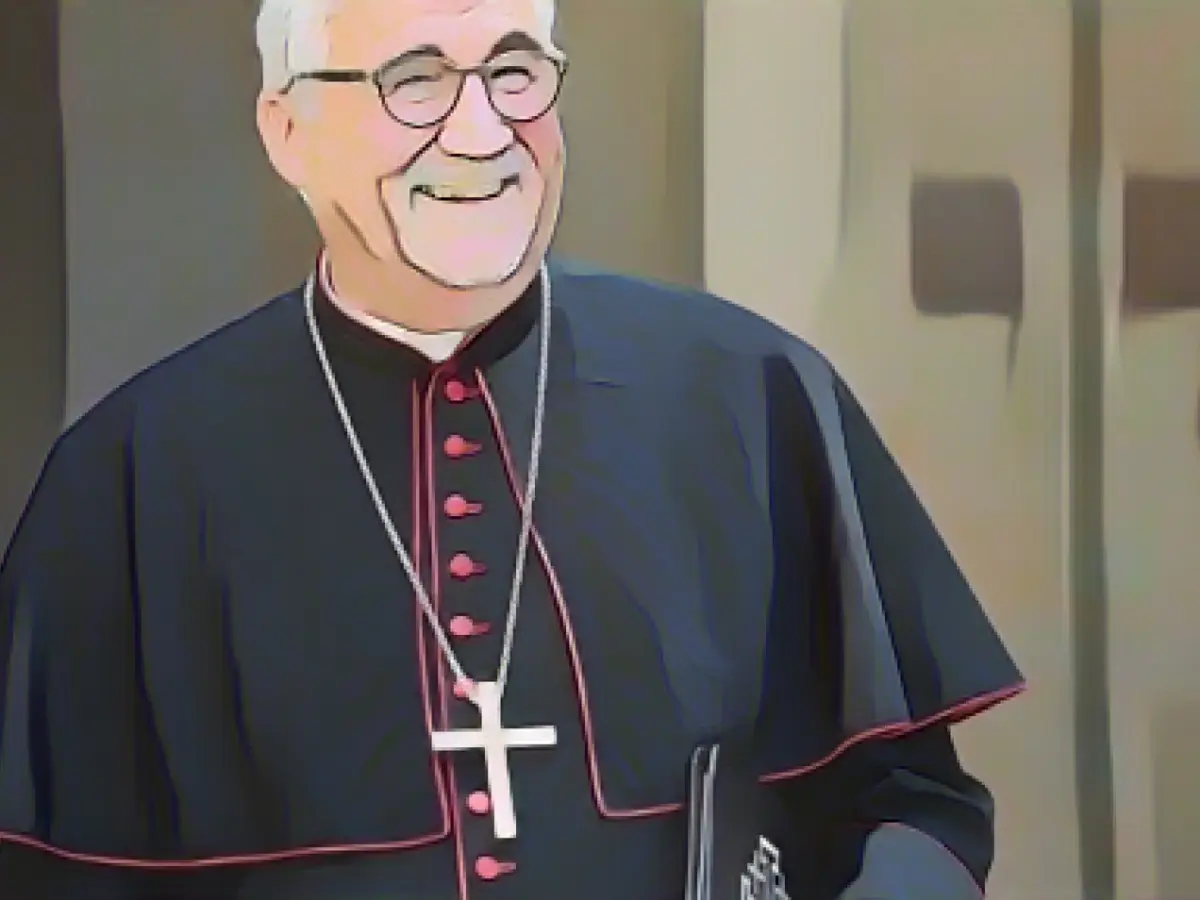Church - The Fürst era comes to an end: Bishop leaves after 23 years
The Fürst era comes to an end on Saturday (December 2). After 23 years, Gebhard Fürst steps down as Bishop of the Diocese of Rottenburg-Stuttgart. On the same day, he will celebrate his 75th birthday with a ceremony - this was also the reason for his request to resign from office, which he forwarded to Rome some time ago. A Catholic bishop retires from office on reaching the age of 75. Canon law prescribes this.
The festivities will begin with a ceremony at 12.00 noon, followed by a pontifical mass in the afternoon, and will conclude with a taps ceremony and civic reception. Prominent guests include Minister President Winfried Kretschmann (Greens), Nuncio Nikola Eterović and Georg Bätzing, Bishop of Limburg and Chairman of the German Bishops' Conference.
Fürst is the longest-serving German bishop and head of 1.7 million Catholics. He has been Bishop of Rottenburg since 2000. A phase of transition begins for the diocese on December 3.
However, the appointment of his successor may take some time. The procedure is as follows: The cathedral chapter draws up a list of possible candidates - this year for the first time in consultation with the Diocesan Council. This list is then sent to the nuncio, the Holy See's ambassador to Germany. He checks the selection of candidates and sends the list to Rome.
From there, a list of three candidates is sent back to the Diocese of Rottenburg-Stuttgart. The cathedral chapter chooses the new bishop from these three candidates. The state government must then be asked whether there are any political objections to the chosen candidate. He is then appointed by the Pope and takes office as the new bishop.
This time, the diocesan council of the diocese also wants to have a say in the election of the new bishop. According to its spokesperson Johannes Warmbrunn, there will be a meeting on January 13 between the 103 voting members of the diocesan council and the eleven members of the cathedral chapter. The successor should be a "strong personality". "He must be open to consultation, because the church is a community. His quality is that he allows himself to be consulted and impressed by it," said Warmbrunn.
Fürst, who enjoys reading thrillers and travel literature as well as theological texts, has never been a revolutionary. Decisions of the universal church and the word of the Pope were binding for him. He rejected a relaxation of celibacy.
However, in Rottenburg-Stuttgart, unlike other dioceses, he set up an independent "sexual abuse commission" 20 years ago.
However, even Fürst, who is perceived as extremely friendly, was unable to stop the mass exodus from the Catholic Church. This is because fewer and fewer Catholics are living in Baden-Württemberg, partly as a result of abuse reports. In the Rottenburg-Stuttgart diocese, the third largest in Germany after Cologne and Münster, around 40,000 Christians left the church last year. A total of 1.66 million people still belong to the church there. In 2000 - the year Fürst took office - there were still over two million believers.
Gebhard Fürst was born on December 2, 1948 as the youngest of three children in the Swabian town of Bietigheim. His father was a gardener and his mother a housewife. Questions of religion occupied him from a very early age, he says. He was ordained a priest in 1977, just like one of his older brothers before him. He was ordained a bishop in September 2000.
Lesen Sie auch:
- Salt gritting ban: local authorities allow exceptions in some places
- Refurbishment of the "Gorch Fock 1" - outer shell complete again
- After Hamas attack: Jewish museum in demand as a place of learning
- Hrubesch likes everyone - and everyone likes Hrubesch
- VfB coach Hoeneß keeps his fingers crossed for the U17s
Gebhard Fürst, the former Bishop of Rottenburg-Stuttgart, was succeeded by a new Bishop, following a transition phase within the diocese on December 3. The German Bishops' Conference, chaired by Bishop Georg Bätzing, was among the prominent guests at Fürst's farewell ceremonies. The new Bishop's election procedure involved the cathedral chapter and the Diocesan Council drawing up a list of potential candidates, which was then sent to Nikola Eterović, the nuncio, and subsequently to Rome. The Holy See would then send a list of three candidates back to Rottenburg-Stuttgart, from which the new Bishop would be chosen. The Diocesan Council also desired to have a role in selecting the new Bishop. They believed that the new Bishop should be a "strong personality" who values openness and consultation. Gebhard Fürst, born in Bietigheim, was known for his friendship and never shied away from the decisions of the universal church or the word of the Pope. Despite his efforts, he was unable to halt the mass exodus from the Catholic Church in Rottenburg-Stuttgart. This exodus was attributed to fewer Catholics living in Baden-Württemberg and in part due to abuse reports. The diocese, under Fürst's leadership, had established an independent "sexual abuse commission" 20 years prior. The appointment of Fürst's successor may take some time due to the formal electoral process.
Source: www.stern.de








